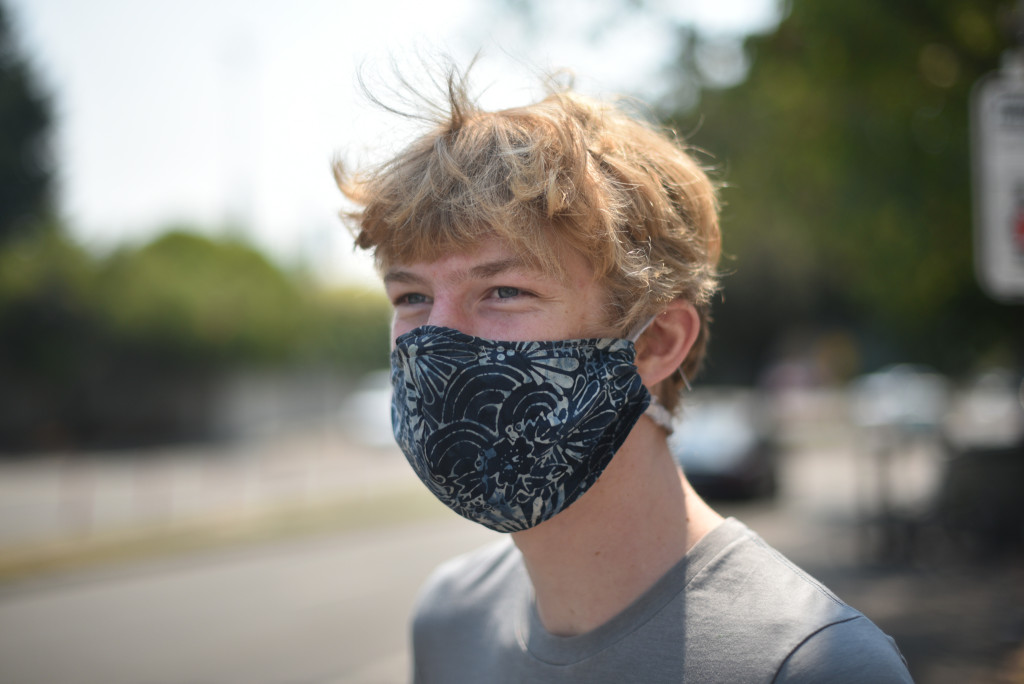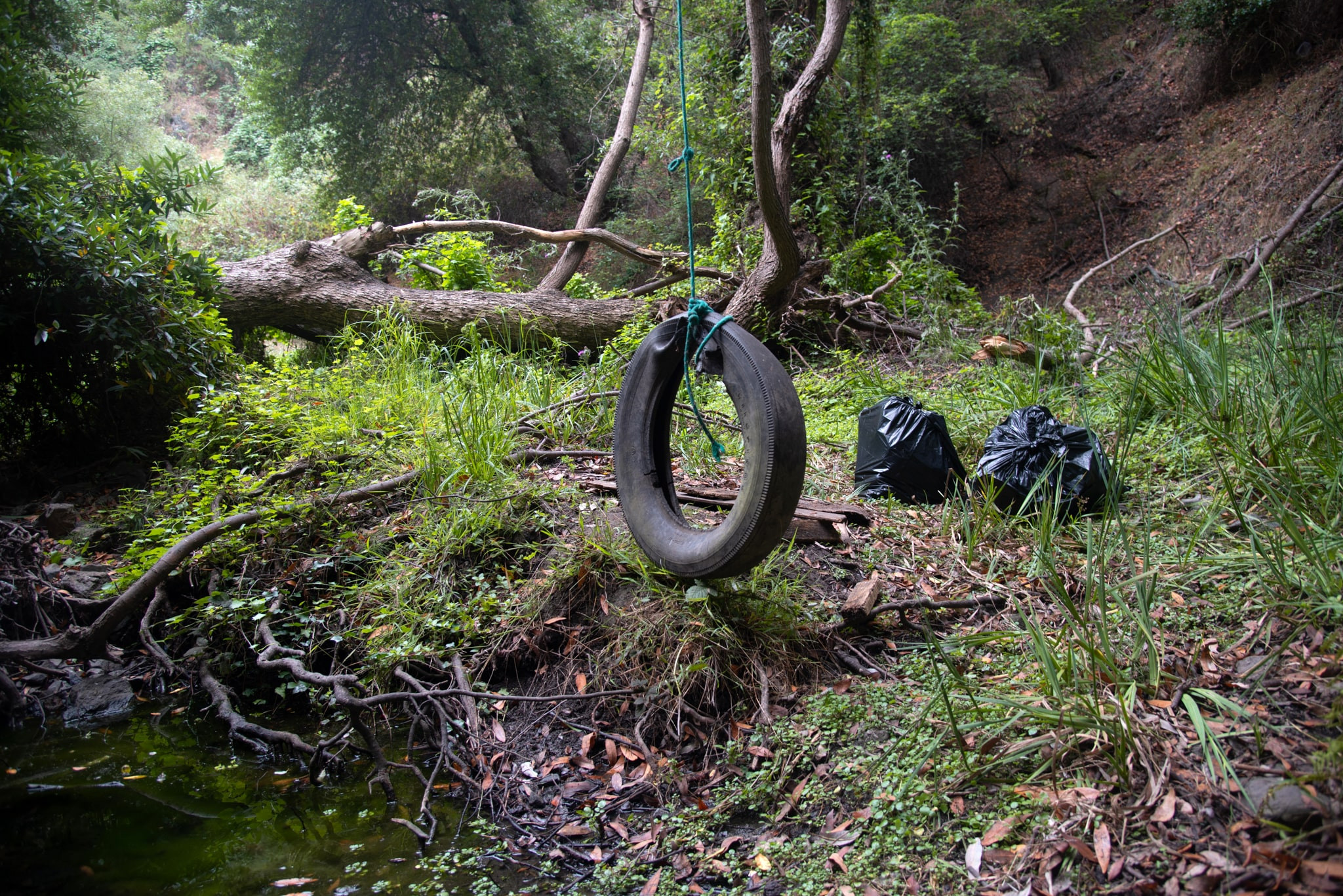The many prominent issues relevant to today’s world can make it overwhelming to decide who and how to help. But Berkeley High School (BHS) junior Milo Moses proved that starting a project and putting in effort can make creating change completely achievable. In late August, Moses began working on a trash cleanup project in a secluded canyon off of The Alameda and Arlington Avenues in the Berkeley Hills. Over three weeks and about 15 hours, he and two friends managed to fill up almost 20 trash bags.
Moses had noticed the buildup of debris in the canyon for a while before he started the project, but decided to take action after discussing the problem with a few local residents. The neighborhood surrounding the canyon is made up of an older demographic who have been struggling to organize their own city beautification efforts. After Moses stepped in, he said, “It was nice to help out that community and get to know them.”

Cleaning up the canyon was relatively straightforward, but organizing the removal of the trashbags proved to be more challenging. After researching some options, Moses realized that he would need to spend over $350 to rent a dumpster that would fit his needs. Instead of paying the money, he contacted the mayor, who put him in touch with the Department of Public Works.
It is not unusual for the Department of Public Works to receive reports of illegal dumping or trash buildup, but Moses’s more proactive stance was a welcome change of pace. Collaborative efforts prove imperative to maintaining the quality of our public spaces. “I think Berkeley does best when it works arm in arm between city staff and our residents,” explained Public Works Director Liam Garland. Within 48 hours of Moses’s request, the city coordinated the trash bag pick-up and everything was removed for free.
“If you’re doing a project like this, try not to spend that much money on it,” Moses advised. He explained, “If you’re doing community service, people are going to want to help you. You want to try to sell yourself.”
City beautification and trash removal projects have grown more and more common in the past few years, with community engagement at the forefront of recent efforts. In commercial and metropolitan areas like Downtown Berkeley, city beautification encourages economic development and appeals to a strong social environment. Beautification efforts in residential areas, like the neighborhood where Moses led the cleanup project, work to unify the community. Many believe that cleaner public spaces lead to feelings of security and can improve city pride and quality of life.
Although Moses’s work primarily focused on making outdoor space more accessible and attractive for neighborhood residents, the ecological impacts of clean-up projects can’t be dismissed. The public needs to make a commitment to maintaining green spaces in order to create a sustainable environment. Maintenance efforts can reduce erosion, help wildlife, and ensure that trash stays out of our oceans.
For Moses, the work doesn’t end with the canyon. He plans to continue trash pick-up all over Berkeley during his free time. “I was just going to go to Aquatic Park and clean that up, but on the way I noticed a whole bunch more trash just laying around in the streets,” Moses said. “It’s been a week now and I’ve yet to make it to Aquatic Park … I think that I’ll keep doing this throughout the year,” he explained.
Rather than spend hours detailing plans, Moses encouraged others to act with spontaneity when forming their own community service initiatives. He advises students to “just go for it” when they see problems within their own communities, and to try not to let logistics hinder progress. He said that community improvement can be straightforward and attainable if enough energy and thought is employed.
Other students who are interested in helping to clean up their communities are encouraged to seek help from the Department of Public Works as well. “Milo’s project is a great example of more projects we’d like to collaborate on,” said Garland.
To contact the department, email [email protected] for more information or support.





